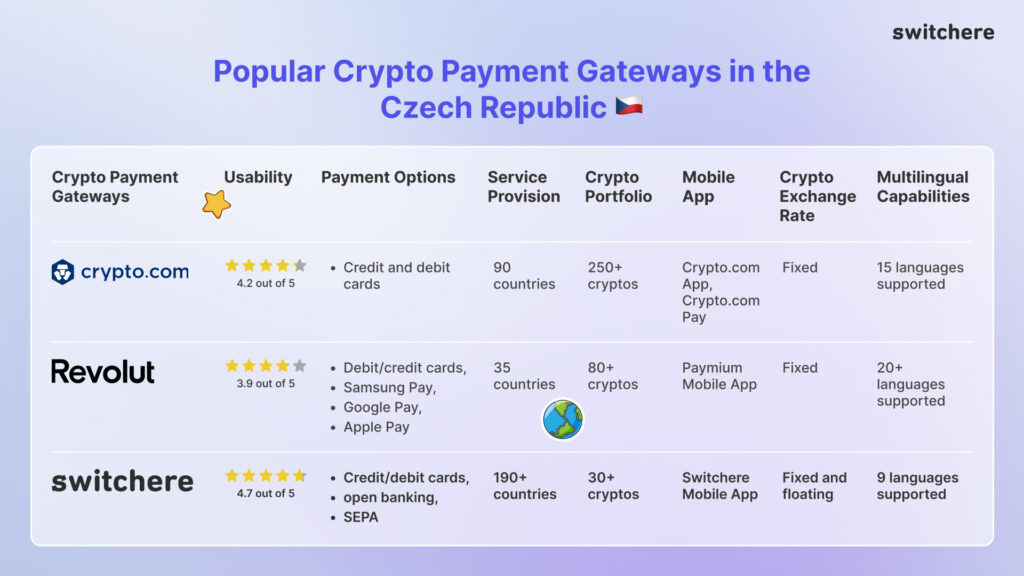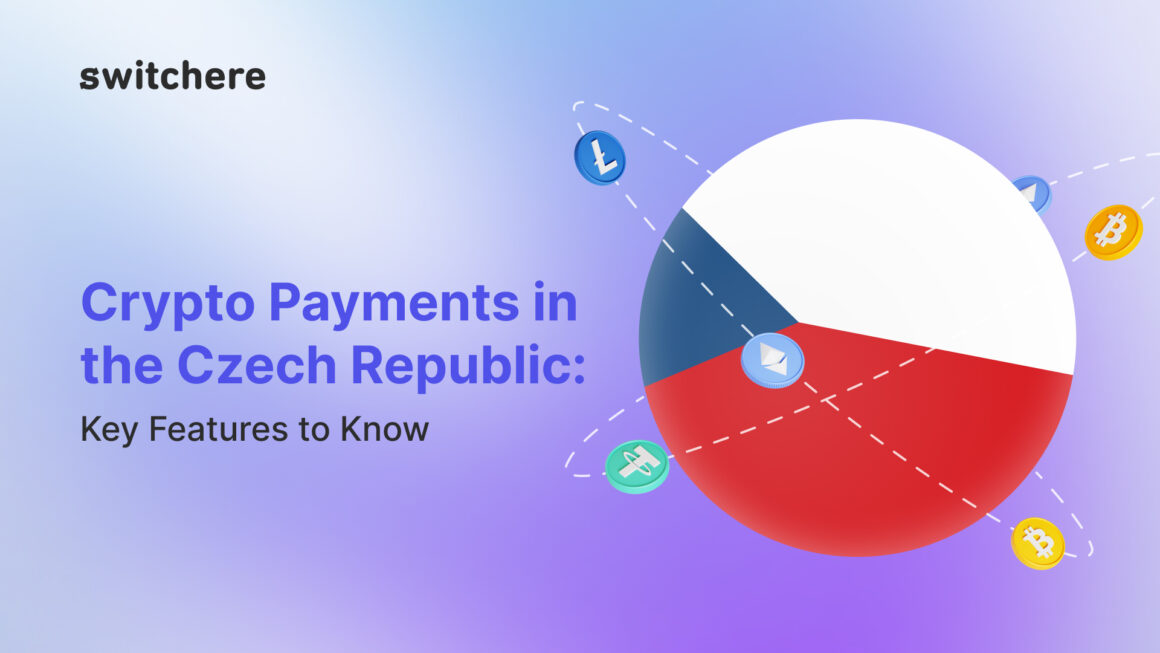As the adoption of cryptocurrencies continues to grow worldwide, the Czech Republic has not been left behind. At the date of writing, the Czech Republic has a relatively friendly stance towards cryptocurrencies, with no specific regulations in place. Cryptocurrencies are generally treated as a legal means of payment, and businesses are allowed to accept them within the existing regulatory canvas. This brief analysis explores the current status of virtual currency regulation in the Czech Republic, examines the prevailing conditions for virtual assets and crypto payments, and delves into the licensing and registration directives for businesses and virtual currency operators.
Cryptocurrency Regulation Framework
The Czech Central Banking Institution and the Ministry of Finance have been actively involved in shaping the regulatory framework. Notably, the CZ country has adopted a relatively lenient stance compared to some other European states, viewing virtual currencies as a legitimate means for real-time payments.
The regulatory carcass primarily focuses on AML/KYC and CTF measures. Virtual currency exchange facilitators and wallet providers are obligated to implement robust customer identification procedures and transaction monitoring systems. Furthermore, these entities must report suspicious TXs to the local authorities.
Current Disposition of Virtual Assets and Crypto Payments
Cryptocurrencies have gained traction in the given country, with a growing number of merchants accepting digital assets as a form of payment. Bitcoin, in particular, is widely used for various transactions, ranging from online purchases to in-store payments. The country has witnessed a surge in cryptocurrency ATMs, facilitating the conversion of digital assets to fiat currency and vice versa.
The country’s acceptance of virtual assets is not limited to Bitcoin; other digital assets like stablecoins and DeFi tokens also enjoy a degree of popularity and usage. However, it is crucial to note that virtual currency adoption is still making headway, and challenges such as price volatility and regulatory uncertainties influence the fintech sector.
Virtual Currency Licensing and Registration Requirements
All crypto-related businesses are required to keep up with due licensing and registration requirements. The registration process involves submitting accurate data about the business, its ownership scheme, and the deployed AML standardized norms.
Popular Crypto Payment Gateways in the Czech Republic
Several crypto payment gateways have emerged to facilitate the seamless integration of cryptocurrencies into the Czech economy. These gateways act as intermediaries between merchants and customers, enabling businesses to accept digital currencies for goods and services. Some notable crypto payment gateways in the Czech Republic are outlined below.

Crypto.com
Without further ado, Crypto.com is a Singapore-based full-featured virtual currency fintech firm that specializes in rendering crypto-related operations (trading, NFT trading, on-ramping, staking, leveraged and derivative trading) and other blockchain-related services.
By and large, its main advantages are transparent and competitive pricing and easy crypto conversions with cashback rewards. However, the main cons are that its partners can be select institutions, and the company lacks a profound trading tutorial for its users.
Revolut
Going further, Revolut specializes in bank card payments, foreign exchange services, as well as P2P payments. Unlike Crypto.com, it has a smaller customer base (half less than Crypto.com). However, it is more focused on in-person payment systems, greater flexibility and product diversity, lower commissions, and next-day settlements.
Revolut is a UK-based firm operating from 2015 onwards. The exchange provider has a wide selection of crypto-related services. However, the key disadvantages pertinent to Revolut are limitations to deposit protection and the absence of its online support line.
Switchere
In turn, Switchere is a fully licensed virtual currency exchange service provider headquartered in Lithuania. It has been in the crypto business since 2019 and keeps on expanding its list of crypto-related services. It has managed to render both B2C and B2B e-commerce CRM with a prime focus on ease-of-use, transparent and low fees, product diversity, and impeccable service provision.
The Switchere’s differentiating factors worth mentioning are seamless fiat on-ramp and off-ramp, plug-and-play NFT Checkout, and fuss-free coin listing within the Switchere ecosystem.
Conclusion
To put it in a nutshell, the CZ Republic has taken significant steps in honing a refined regulatory framework for virtual currencies, aiming to strike a balance between fostering innovation and safeguarding financial integrity. As the cryptocurrency landscape continues to evolve, it is essential for business entities and stakeholders to stay abreast of regulatory developments.
The country’s positive attitude toward digital assets, coupled with a comprehensive regulatory framework, positions the CZ Republic as an appealing niche for the uprise of the digital asset ecosystem. However, stakeholders should remain vigilant as regulatory landscapes can change, impacting the cryptocurrency industry and business atmosphere.

Leave a Reply